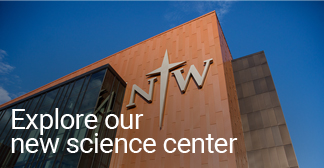Biology–Health Professions
Biology provides a broad background in the life sciences in order to equip you with knowledge and skills to serve God’s creation. Required courses will introduce you to the created order of life, while advanced courses will permit you to concentrate in areas of particular interest. The biology major options will prepare you for a career in ecological science, in medicine and related health professions, in teaching, or to begin graduate or other professional studies in these areas.
Major requirements
Biology electives: 20
BIO 115SN - General Biology: Molecular and Cellular Biology
(4 credits) (NWCore option under Science and the Natural World) An introduction to molecular and cellular biology, with an examination of the processes common to living organisms and an introduction to the diversity of life, emphasizing unicellular organisms. This introduction will provide students with a basic understanding of macromolecules, cell structure and function, respiration and photosynthesis, the cell cycle, meiosis, genetics, mechanisms of evolutionary change, and Christian perspectives on evolutionary biology. Prerequisite: Combined Math + Science ACT of at least 44, sophomore standing, or permission of instructor.
Note: Three lectures and 3 hours of laboratory work per week. A fee is associated with this course.
BIO 116 - General Biology: Ecology and Organismal Biology
(4 credits) An introduction to organismal biology and ecology. Structure and function of representatives from the plant and animal kingdom are emphasized. In addition, students will be introduced to basic ecological concepts and Christian perspectives on stewardship.
Note: Three lectures and 3 hours of laboratory work per week. A fee is associated with this course.
Choose one course: 4
BIO 202WI - Genetics and Genomics
(4 credits) (Writing intensive) An introduction to the principles of heredity and their practical applications. Prerequisites: BIO115 or 116.
Note: Includes 3 credits of lab per week. A fee is associated with this course.
BIO 327WI - Biochemistry:Molecular Genetics
(4 credits) (Writing intensive) This course focuses on the structure and function of nucleic acids and examines the biochemical techniques involved in gaining knowledge regarding replication, transcription and translation of genetic information, and control of gene expression. Prerequisites: BIO115SN and CHE321 and CHE322, or BIO202WI.
Note: Includes 3 hours of lab per week. A fee is associated with this course.
Cognate requirements:
Chemistry, biochemistry or physics electives 8
Choose one sequence: 8
CHE 101SN - College Chemistry
(4 credits) (NWCore option under Science and the Natural World) This course is an introduction to inorganic chemistry, with an emphasis on the health sciences. It is well suited for students whose programs require one year of chemistry.
Note: Three lectures and one three-hour laboratory period per week. Open to all students. A fee is associated with this course.
CHE 102 - College Chemistry
(4 credits) An introductory course in organic and biological chemistry. The content is especially suited to meet the needs of students whose programs require only one year of chemistry. Prerequisite: CHE101SN.
Note: Three lectures and one three-hour laboratory period per week. A fee is associated with this course.
CHE 111 - General Chemistry
(4 credits) An introductory course in chemistry that emphasizes physical and inorganic concepts, problems and calculations. Topics include chemical reactions, stoichiometry, properties of gases, thermochemistry, theories of atomic structure, and chemical bonding. The general chemistry sequence (Chemistry 111 and Chemistry 112) is recommended for students with good math / science preparations who intend to proceed to advanced courses in chemistry, the biological sciences or engineering. Prerequisites: high school chemistry and ACT math score of at least 24 (SAT 570 or above).
Note: Three lectures and one three-hour laboratory period per week. A fee is associated with this course.
CHE 112 - General Chemistry
(4 credits) A continuation of Chemistry 111. Topics covered include kinetics, thermodynamics, chemical equilibria, acid-base chemistry and nuclear chemistry. Prerequisite: CHE111 or consent of the instructor.
Note: Three lectures and one three-hour laboratory period per week. A fee is associated with this course.
Total credits required: 48
Note:
All Biology Health Professions majors are required to take at least 12 credits of 300-level (or above) biology courses, at least 8 credits of which must have a laboratory.

